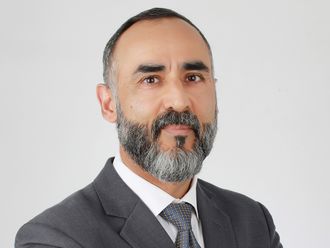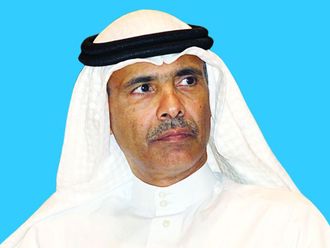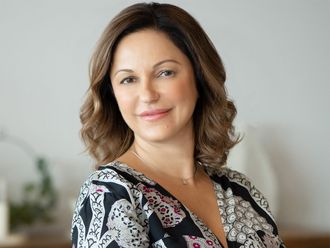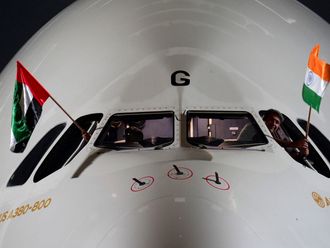The time is ripe for Gulf Co-operation Council (GCC) countries to slow the process of implementing the ambitious Gulf Monetary Union project.
The suggestion rests on the Eurozone's vivid experience following Greece's debt problem.
We are making this proposition as Gulf Co-operation Council officials are preparing the agenda for the annual summit to be convened in Abu Dhabi this year.
The summit will be the 31st of its kind for Gulf Co-operation Council heads of state. Abu Dhabi hosted the inaugural Gulf Co-operation Council summit in 1981.
Only four Gulf Co-operation Council countries, namely Saudi Arabia, Qatar, Kuwait and Bahrain are members of Gulf Monetary Union.
In other words, one third of Gulf Co-operation Council members — specifically the UAE and Oman — opted to shun the scheme.
No desire
For its part, Oman made it clear from the start that it had no desire to join the Gulf Monetary Union project for economic reasons.
In reality, the sultanate's objection can be understood by looking at the union's criteria.
The Gulf Monetary Union requires member countries to adhere to five conditions dealing with fiscal and monetary standards.
These are to limit public debt to 70 per cent of nominal gross domestic product (GDP) at current prices; to restrict the budget deficit to three per cent of the GDP; to limit the inflation rate to plus two per cent; to ascertain that short-term interest rates not exceed two per cent of the average of the three lowest rates of member countries; and to ensure that reserves cover import bills for four months.
Understandably, Oman wants to enjoy the freedom to decide the fiscal and monetary choices most suitable for the economic challenges and opportunities facing the sultanate.
One such argument rests on the notion that unlike other Gulf Co-operation Council countries, Oman has not had enough opportunity to develop its economy due to the relatively late discovery of oil there in 1968.
Oil was discovered in Bahrain in 1932.
One such fundamental shortcoming with integrative projects such as the Gulf Monetary Union relates to the constraints of sovereign decisions.
Criteria violated
The euro experience-zone shows that member countries violated the debt-to-GDP ratio criteria by not disclosing pertinent information on time.
Member countries are expected to behave in certain ways, but it can be different in practice.
Unfortunately, Greece's debt crisis has proved costly for the 16-member Eurozone project.
Member countries were left with no choice other than to pump billions into Greece's economy.
This has been a costly decision as that money could have been used to address other challenges facing Eurozone countries.
Other than pressing for the ambitious and controversial Gulf Monetary Union, the upcoming Abu Dhabi summit also needs to focus on the Gulf Central Market project.
The Gulf Central Market began in January 2008 and calls for the free flow of production factors among member states.
It covers economic and investment services, dealings in the stock market and the setting up of companies in the public and private sectors, besides social insurance for GCC citizens.
To its credit, the last Gulf Co-operation Council summit held in Kuwait towards end of 2009 added access to technical studies to the list of shared activities.
In practice, the Gulf Central Market focuses on finding a unified regional market through which nationals would benefit from available opportunities.
It makes sense to provide Gulf Co-operation Council subjects with sufficient opportunity to appreciate the benefits of the Gulf Central Market prior to heading for the Gulf Monetary Union.
All Gulf Co-operation Council countries are members of Gulf Central Market. But the Gulf Co-operation Council cannot overlook the Eurozone's painful experience.
The writer is a Member of Parliament in Bahrain.












